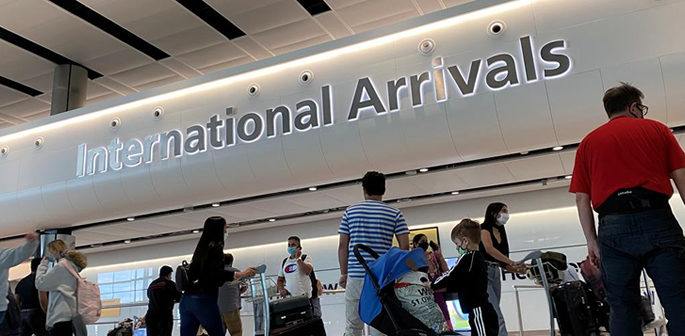"It's vital to take these extra measures now"
Prime Minister Boris Johnson has announced that the UK is to close all travel corridors from January 18, 2021. It will come into effect at 4 am.
The PM said it is to “protect against the risk of as yet unidentified new strains” of Covid-19.
Anyone flying into the country from overseas will have to provide proof of a negative Covid-19 test before travelling.
This comes after a ban on travellers from Portugal and South America came into force on January 15, 2021, over concerns about a new strain identified in Brazil.
At a Downing Street press conference, Mr Johnson said the new measures will be in place until February 15, 2021, at the earliest.
The PM said: “It’s vital to take these extra measures now when day-by-day we are making such strides in protecting the population.”
People arriving in the UK will need to isolate for up to 10 days, unless they test negative after five days, in line with the current policy.
Mr Johnson also said that the government would be increasing enforcement at the border.
Travel corridors were introduced in the summer of 2020 to allow people travelling from some countries with low numbers of Covid-19 cases to come to the UK without having to quarantine on arrival.
Trade body Airlines UK said it supported the new restrictions “on the assumption” that the government would them “when it is safe to do so”.
Chief executive Tim Alderslade said: “Travel corridors were a lifeline for the industry last summer and the government were right to bring them in when they did.
“But things change and there’s no doubting this is a serious health emergency.”
Mr Johnson’s announcement comes as a further 1,280 people died in the UK within 28 days of a positive test on January 15.
In the UK, the pandemic is still officially estimated to be growing, according to the latest R number, but data suggests new cases are beginning to fall.
The R number – which takes into account cases, hospitalisations and deaths – is estimated to be between 1.2 and 1.3, compared with 1 and 1.4 last week.
This indicates that the total number of people with the virus is still rising across the UK.
However, in London, where tight restrictions came in earlier, the R number is lower.
In the capital, the estimate, based on data up until January 11, is between 0.9 and 1.2, compared with 1.1 and 1.4 the previous week.
Meanwhile, more than three million people in the UK have now received the first dose of a vaccine.






























































